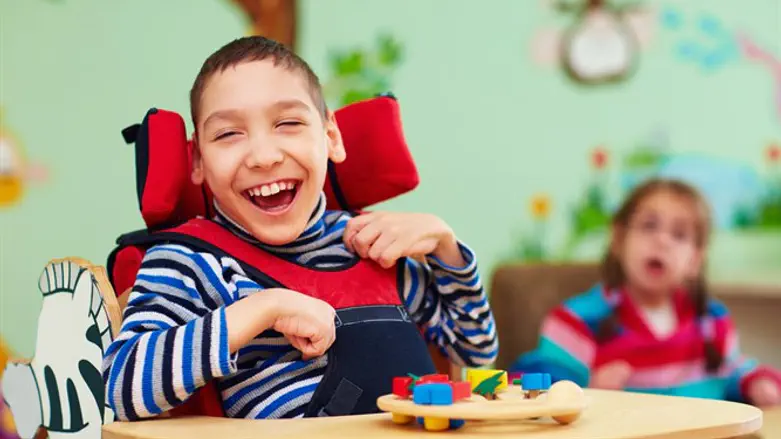
"Why do they all dress the same?" A key to understanding haredi attitudes towards outward appearances may be contained in a new survey initiated by Ono Academic College showing the haredi public's views on integrating people with disabilities into society to be very positive.
93% believe it is important to allocate resources for integrating children with disabilities into the education system, a particularly encouraging statistic compared with recent publications on the strong opposition by many parents to including children with disabilities in their children's educational frameworks.
Only last summer did residents of Bnei Brak struggle to protect schools for children with special needs, revealing strong opposition to harming this population that is now very close to their hearts.
The survey also found that 85% of the respondents believe that the employment of people with disabilities in the free market does not affect the success of a business. 77% of the respondents agreed that housing frameworks for people with disabilities should be located in the heart of the neighborhood and the community.
This in contrast to many studies conducted on the subject in the general population finding that Israelis have difficulty accepting people with disabilities as neighbors.
The vast majority of respondents indicated they personally know people with disabilities and hold positive opinions about their integration into the education and employment systems. On the practical level, most of them are open to having their child learn in class with a teacher with physical or sensory disabilities.
Another interesting statistic revealed in the survey is that despite the high openness to disabilities, haredi parents do not mind if their children's teachers have disabilities. The most significant obstacle is a mental handicap with about 80% opposing, followed by sensory limitations with a negative perception rate of about 20%, and 6% opposing a teacher with a physical disturbance.